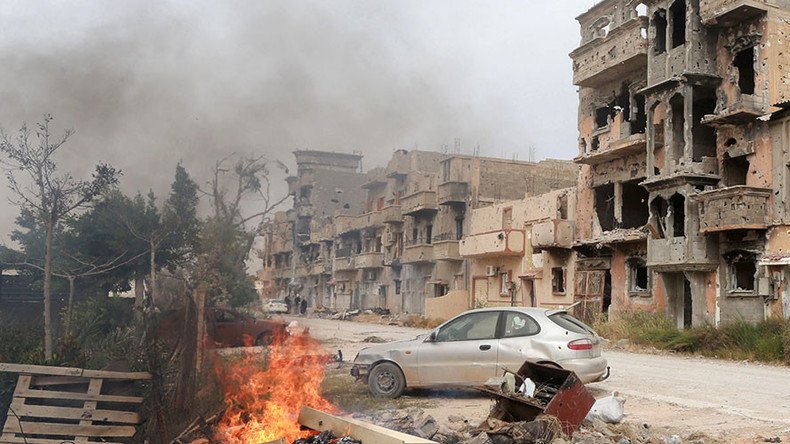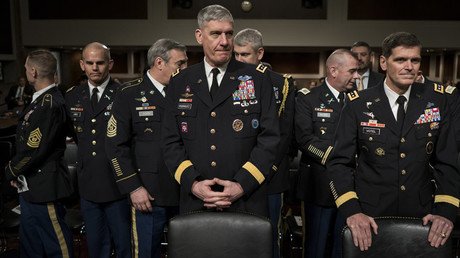‘US-led invasion of Libya opened up massive arsenals to terrorists’ - Chris Hedges

The destruction of Libya, Iraq and Syria as unified states generated Islamist radical groups in the Middle East, which create havoc, said investigative journalist Chris Hedges. This was caused by the invasion of outside forces, he added.
RT: How much of a threat does Islamic State (IS, formerly ISIS/ISIL) pose in Tunisia?
Chris Hedges: It is probably not an existential threat, but it is a threat, because after the US overthrow of [Muammar] Gaddafi it essentially opened up these massive Libyan arsenals to a series of groups reaching all the way down into Sub-Saharan Africa – countries like Mali. So you have provided one logistical base, because these militants are based just over the border in Libya, along the border with Tunisia; and it has provided weapons by which they can carry out attacks. Of course it has also provided training.
The destruction of Libya as a unified state - like the destruction of Iraq and Syria - has spawned these groups that can create significant havoc inside countries in the region, and that is what we’re seeing.
RT: Tunisia has built a new 200 kilometer barrier on the Libyan border to stop ISIL. Will this help?
CH: That is a long border. I don’t know how long it is, but I have been there. It is going to be pretty hard to keep ISIS out; it is a remote, often inaccessible, porous border. So I expect to see more attacks like this one.
RT:Have the US air strikes against ISIL in Libya had any impact?
CH: I think the problem is, as we have seen, with the attacks against IS in Iraq and Syria that unless you can occupy the territory you can certainly damage and to a certain extent cripple these movements. But as long as they control the ground, as long as they are able to operate within vast swaths of territory, air campaigns are not going to be able to stop them. And that has just been proven over and over – the Israelis tried that a few years ago in Southern Lebanon and it didn’t work out very well for them.
RT: A US commander recently admitted that Libya is turning into a failed state. Could Tunisia go the same way?
CH: No, I think that the failed states are largely created by the destruction of central authority on the part of outside forces. We saw that with the US invasion of Iraq; we saw that with the decision - not only by the US, but by its allies the Saudis, the Qataris and others - to arm and fund the insurgent groups within Syria; we saw that with the overthrow of Gaddafi. I don’t see that happening in Tunisia. However the creation of a failed state on the border of Tunisia is certainly going to create significant problems, because these armed jihadists have the tools and the space to carry out almost unlimited attacks inside Tunisia.
RT: The US is considering a deeper military involvement in Libya. How could that change the situation in the region?
CH: It’s not just Tunisia. They are moving into all sorts of states around Libya, including in Egypt. You have a significant number of Tunisian jihadists who have already flooded into Iraq and Syria. And if we go back far enough, Afghanistan. So there is a network by which ISIS can draw on in order to attempt to create havoc inside Tunisia.
I wouldn’t say Tunisia is necessarily the next target, I’d say it is one of several targets, and the capacity that ISIS has to disrupt life in Tunisia is significant. I don’t think we can speak about Tunisia becoming an Islamic state – and that is what I mean by saying it is not an existential threat to Tunisia – but it certainly can deeply disrupt life within Tunisia.
The statements, views and opinions expressed in this column are solely those of the author and do not necessarily represent those of RT.













